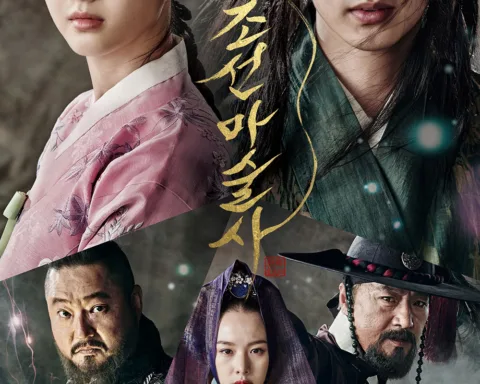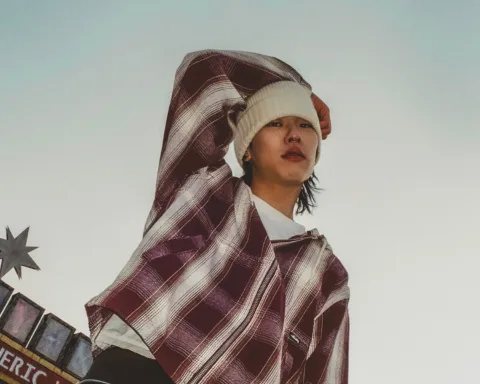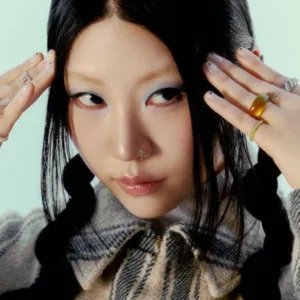I clearly remember how my love for music started. When I was a kid, my dad used to have a small suitcase full of cassettes from different artists, different genres. I can still clearly picture the covers, they were small and had pictures of the artist/group and their/his/her name. The best part of that memory is that I can recall playing them in the small radio we had at home. It was happiness in a small box.
I grew up heavily influenced by my dad’s and my sisters’ music taste. They had completely opposite likes. My dad used to listen to a lot of soft rock, Venezuelan country music, Spanish pop and so on, whilst one of my sisters was into grunge music, reggae, Latin-American rap and the other one liked salsa, merengue and tropical rhythms. I was quite lucky to have such a diverse mix of music around me.
I believe that growing up in that sort of environment allowed me to broaden my likes as I grew older. As a teenager I listened to everything, from heavy electronic music to heavy metal to Cuban salsa or merengue. In my early twenties I started to listen to a lot of American and English pop and I developed an undying love for the French Edith Piaf.
No one ever criticized my music taste, even when I was into NSYNC, the Backstreet Boys or the Pussycat Dolls, until I started listening to K-pop.
My journey with the genre started while watching K-dramas (which I also got criticized for watching) I remember watching “While You Were Sleeping” a drama starring Suzy Bae and Lee Jong-Suk and in this one scene “Fantastic Baby” by Big Bang started playing and I absolutely loved the beat. I shazamed it and started listening to the entire discography of Big Bang and I haven’t stopped ever since.
I guess what attracted me the most to Korean pop was the diversity of it. You can find soft melancholic romantic songs, rappers tackling social issues, indie music and so on. It is packed with variety that isn’t just in musicality but also in looks, concepts and dance.
The first time I told a group of friends I liked K-pop (which seemed absolutely normal to me) their reaction was: “don’t tell me you are one of those people.” In fairness, I didn’t get the reason for their reaction nor was I familiar with the concept many people have of K-pop.
For a long time I was slightly afraid of being regarded as the “creepy girl that liked K-pop”. I didn’t want to be generalized based on a music genre I enjoy. At the same time though, I wasn’t about to stop listening to it because I genuinely enjoyed it.
One day while talking with a good friend who also likes K-pop, I noticed that I wasn’t the only one worrying about this. She also felt weird about telling people she liked the genre because she felt judged every time she did. In that moment the only thing I could think of was why were we both feeling so awkward about liking it? What could possibly be wrong with that?
I decided to do a little bit of research about the reasons why people have the notion that you are “weird”, “eccentric” or a “creep” for liking Korean pop and I found a few interesting points that seemed to be a standard in all of the articles I read.
One of the first ones is how “manufactured” the industry is. Many argue that idols are a product of their agencies and they’re given concepts to satisfy audiences against the will of the artist. I won’t argue with that. I feel like that is indeed the reality, but doesn’t that count for artists in any country? It certainly was for many former child stars who started off in the music business or even the groups who are debuting now.
Another reason that seemed to pop up in every article was the “obsessive fanbase”. I guess this is partially true. Some fans might be intimidating because they’re very active on social media and truly have ‘FBI skills’ and they can be quite defensive if you take a stab at their idols. The so called ‘hard stans’ though are not a representation of the entire fandom. They unfortunately get the most attention because people like to cater to their stereotypes. Again, this isn’t limited to K-pop only, these fans are in every fanbase, English or not.
The last point I came across was about the ‘slave contracts’ and the difference in the training system before debuting. Contracts that last for years with very little privilege or income for the artist, are not something limited to the Korean pop industry. It has been in the global music industry for decades. It’s well known by anyone who has read anything at all about western record labels exploiting artists with crazy schedules, forcing them to produce music but giving them just a small percentage of the royalties. This keeps being a reason people hate the K-pop industry but unfortunately can be found in the music industry as a whole, not just in one genre.
Korean music industry is well known for having a systematic training system that allows them to create idols. After a teenager has passed an audition for an entertainment agency, they go into an intense training system where they take singing classes, dance classes, they’re taught how to deal with press, etc. Basically everything they might need for a career in entertainment they get classes for.
The idol training system is very unique and as the K-pop industry is still quite young, it’s still developing and the Korean government had to regulate many aspects of it. Already conditions are better for the artists then they were. Hopefully in the future, they will get even more support from the government so they can thrive in a healthy environment.
I normally try not to compare western music and Korean pop, because I consider them two completely different genres. Unfortunately when it comes to the system itself, the both of them have many similarities that people might not see.
Someone once told me that I was supporting the exploitation of young artists by listening to their music, but so did everyone else when they supported a group or a singer. The truth is we’ll never know entirely because most of them have non-disclosure agreements. Look at what Kesha was going through or even what Taylor Swift had to go through.
I’m sure the system will change soon enough and in the meanwhile I will keep supporting my favorite bands and idols, so they can break free from all of those limitations imposed by their agencies and have the bargaining power they deserve because of their art and talent.
Now when someone asks me about what kind of music I listen to, I can proudly say that I listen to K-pop. The music is fantastic and it helps me get through the day. I refuse to be embarrassed about something I hold so dear to my heart. I’m out of the K-pop closet and I love it.
Interesting links:
Obsessive fans:
https://screenrant.com/times-fans-took-celebrity-obsessions-too-far/
https://www.theverge.com/2017/11/3/16576850/jake-gyllenhaal-newsletter-fandom-fans-essay
https://www.psychologytoday.com/intl/blog/in-excess/201307/celebrity-worship-syndrome
Exploitation in the music industry:
Korean Government regulating K-pop industry:
https://www.hollywoodreporter.com/news/south-korean-law-protect-young-717098













